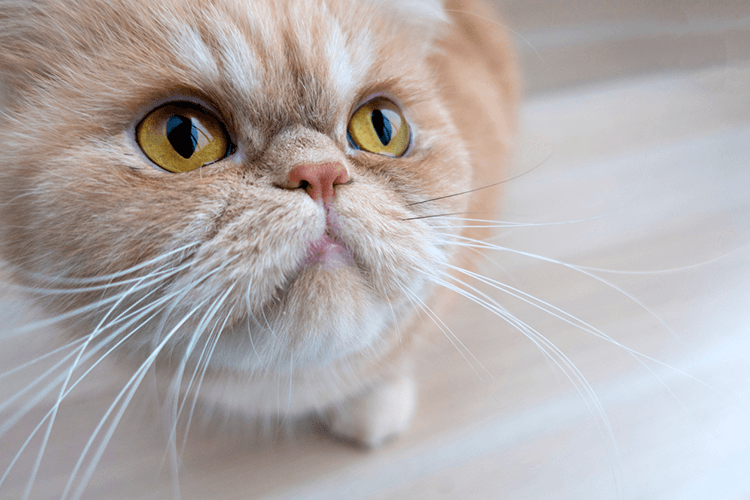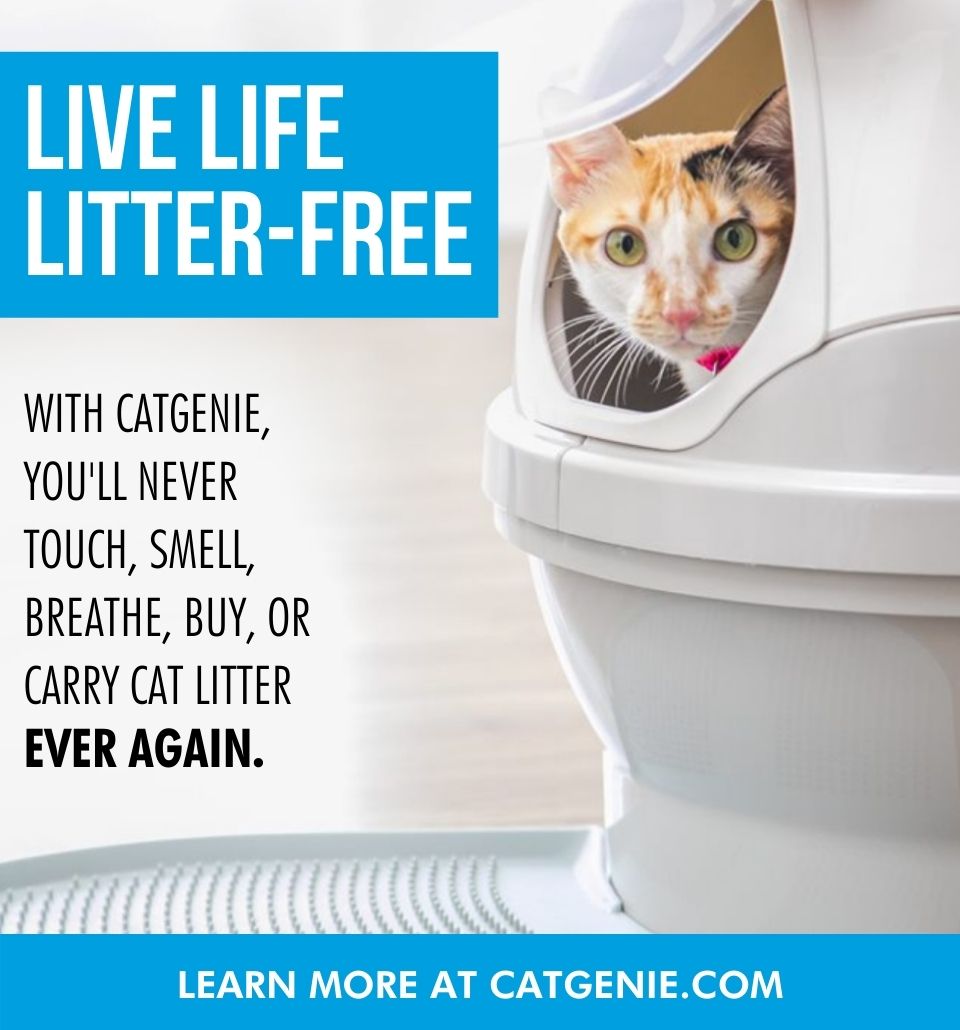Things you didn’t realize were making your cat anxious:
1. Your foul mood.
This might seem obvious to some people, but cats are just as adept as dogs at picking up on human moods. Thanks to the pheromones we secrete, the way the human voice changes pitch and the information we broadcast with our body language, your cat could have an accurate read on your emotional state even before you’re consciously aware of it.
Cats don’t respond well to raised voices. It’s smart to think of them like children: You wouldn’t argue in front of the kids, so don’t argue in front of your kitty. The same goes for other situations. Don’t take your work stress home or give your cat the cold shoulder when human drama has you in a foul mood.
In fact, it’s better for all involved if you look at your cat like a cute, furry emotional reset button. As soon as that happy kitty bounds over to you or nuzzles your hand with her head, let go of your stress and enjoy the fact that this animal loves you more than anyone else in the world. Let her purr lull you into relaxation and forget all your troubles. There’s a reason cats are associated with greater heart health in humans, and it sure isn’t dander.
2. Bullying by other pets or neighborhood strays.
Remember that oblivious teacher from middle school? The one who seemed completely clueless when the class bullies reached for the low-hanging fruit and tortured the kid least likely to fight back? Don’t be that teacher. Some cats become fast friends and others develop a pecking order fairly quickly, but more often than we’d like to admit, our cats bully each other.
There’s a wealth of information from groups like the Humane Society detailing how to properly introduce new cats to your existing pride and how to teach them to co-exist without trying to murder each other. From initial physical separation to exchanging scents and adding litter boxes, there are steps you must take to ensure a peaceful home for all your pets.
Make sure you’re also cognizant of territory, and what it means to felines. When you look at your home you see bedrooms, a living room, a kitchen. But Mr. Meow sees it quite differently: It’s his realm, his territory, and it must be protected at all costs. Cats are “control freaks” when it comes to boundaries, Rhode Island veterinarian Cathy Lund told PetMD.
If your housecat is enraged by the sight of a swaggering stray lounging on the porch or scratching a tree in your yard, consider closing your blinds during the time of day when the stray makes its rounds. If you’ve got a multi-cat situation, pay close attention to territorial arrangements to make sure the more timid members of your pride aren’t boxed out by their aggressive brothers or sisters. If they are, you probably need to clear some new spots or make some new hideaways to help keep the peace and your little freaks at ease.
3. The overwhelming scent of essential oils and air fresheners.
Essential oils are all the rage these days, with proponents claiming they’re a miraculous cure-all that can snuff out allergies, clear acne, eliminate anxiety, reverse damage from sunburn, replace sunscreen, clear dandruff, dispel motion sickness and even cure cancer. Heck, some people claim essential oils can vaccinate against smallpox, a disease that has killed more than 300 million people in the 20th century alone.
Well, then. Shut down the medical schools! Close the hospitals! Sell your pharmaceutical stocks! We have found the miracle drug, and it can cure literally anything!
Unfortunately it’s nonsense. All of it. The best you can hope for is a placebo effect, or the kind of mood-lifting associated with aromatherapy, whose proponents don’t make crazy claims about healing bones and curing deadly diseases.
If you needed another reason not to drop $300 on volatile chemicals, think of your pets. Both dogs and cats are famously sensitive to smells, and while we already knew a cat’s sense of smell is many orders of magnitude more sensitive than a human’s, recent research suggests cats may be even more olfactorily sensitive than we previously realized.
But offending kitty’s sense of smell may be the least of your worries, because certain essential oils are toxic to cats. They can be poisonous and even fatal, and can result in difficulty breathing, vomiting, muscle tremors, burned skin, lips and tongue, and difficulty walking. Cats are most susceptible to poison by essential oil, but dogs are at risk as well. Tread carefully.
4. Dumb pranks.
Those Youtube videos showing cats freaked out by cucumbers? They’re not funny. It’s the equivalent of a particularly potent jump scare in a horror movie, except it’s real life for cats and they don’t have any way of knowing it’s coming. Such “pranks” are a serious breach of trust when a cat’s humans, the people they love and trust most in the world, have a laugh at kitty’s expense.
It’s not a coincidence that most cat-cucumber videos involve surreptitiously placing the cucumber behind the cat while it’s eating. Cats are vulnerable while they’re eating and feeling safe at meal time is important to them. Slipping a cucumber behind your cat while she’s enjoying her dinner might seem funny to some people, but it’s a guaranteed way to cause stress and long-term anxiety every time the cat eats.
5. Separation anxiety.
Contrary to the popular view of cats as independent, aloof creatures who only care about their humans when it comes to food, cats really do get attached to their owners, and separation anxiety is a real phenomenon. They may not become as physically destructive as dogs do in similar circumstances, but they have ways of letting you know, like incessant meowing and excessive grooming.
That’s especially true when cats are strongly bonded to a single person, as many of them tend to be. If you work a regular 9 to 5 job, adopting two kittens instead of one makes life much easier for you and the cats, who have each other as playmates while you’re at work. If you’re going away for a few weeks, consider leaving a few unwashed t-shirts on your bed, a window sill, the couch – anywhere your cat likes to lounge.
Your scent will calm them. As for your cat sitter, dropping by once a day to put out a food bowl and fresh water won’t really cut it. The sitter should hang around for at least 15 or 20 minutes to play with your cat. It’ll ensure Ms. Fluffy gets exercise, take her mind off your absence and stave off boredom.
If you’re out of the house frequently and your cat urinates on your bed, clings to you constantly when you’re home or refuses to eat, those are signs that could signal severe separation anxiety. Take care of it quickly, before it manifests as a serious physical condition.






